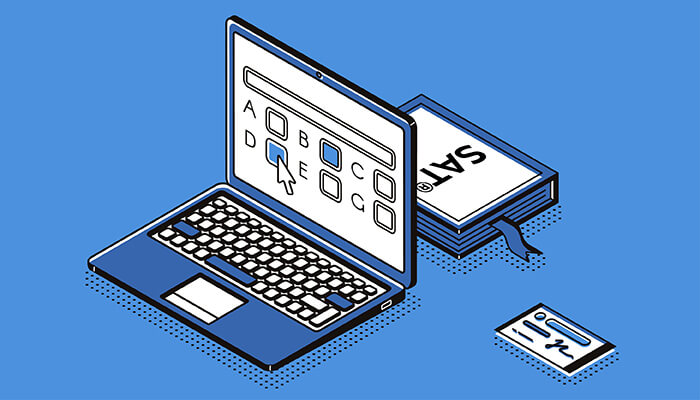The SAT is a national standardized test likely familiar to almost all high school students. Some remember it as a harrowing annoyance, while others barely prepared for it. Many lucky individuals may not have had to take the test at all during high school, as many colleges have excluded it as a requirement for entrance after the pandemic in 2020. For those who have previously taken the SAT, your prior experience of frantic bubbling and panicked calculations are still prominent… just not on paper.
The College Board has made many recent adjustments to the SAT, including a complete removal of the written essay portion in 2021. The organization does not plan on stopping these rapid changes anytime soon, with the year 2024 perhaps being the most significant. For starters, the format of the test has completely shifted from pen and paper to a digital screen, either a personal device or school-issued computer. This is intended to amplify test-taking accessibility and create a closer alignment with the changing educational front which is becoming increasingly reliant on computers and technology. Additionally, pilot tests done within the past few years have determined that a digital format for the test alleviates as much as 80% of stress from students. Some other test-enhancing shifts have been made, including access to a digital DESMOS calculator for every math problem, shorter passages in the reading section, and a higher time-per-question ratio overall. A new scoring method includes an “adaptive” component that assesses how well students do with an initial difficulty level before advancing them to the next level. Students who perform more poorly on the first part will be shown easier questions worth less points, and students who do better will be shown more rigorous questions worth more. Finally, a popular change among students is the decrease in the timeframe of receiving test results, which has jumped from weeks or even months to merely a few days. A similar transition to a digital format has already occurred in the past year with the PSAT, a practice form of the SAT administered to juniors across the nation.
Personally, I think the digital format will alleviate some of the stress of taking a standardized test like the SAT, while giving students room to reevaluate their study habits. Along with these changes, studying for the SAT has arguably gotten easier, as students worry less about pacing and memory but more on testing strategies. Although there are still formulas and grammar rules you have to remember, the new SAT will try to focus more on testing critical thinking skills through a more individualized experience.
Some students and teachers regard these changes as a push for the test’s relevance, but others argue that it does not counteract the lessening importance of the standardized test for college applications. As more and more schools go test-optional, students are given less of an incentive to take the SAT and assessments similar to it. In lieu of these testing requirements, students are encouraged to expand more on their college application in the forms of extracurriculars and outside awards. However, trying to maintain good grades while being president of 3 clubs and CEO of your own company can quickly lead students to burn out. In my own opinion, taking the SAT can be a rewarding experience regardless if it improves your application or not. It tests your ability to recall and retain information under pressure, which is a necessary skill in most professions. On the contrary, however, there exists a point when the testing process becomes too stressful and overwhelming for students. No matter what score you receive on your test, do not fret — it is not the end of the world. Not only are there unlimited opportunities to retake the test, but there is always the option to simply withhold your testing statistics from most colleges. All in all, these changes to the SAT have been established with the intention not to intimidate students, but rather to enhance their testing experience. Whether this is effective or not will remain a question as the first official digital test is administered imminently this upcoming March.

